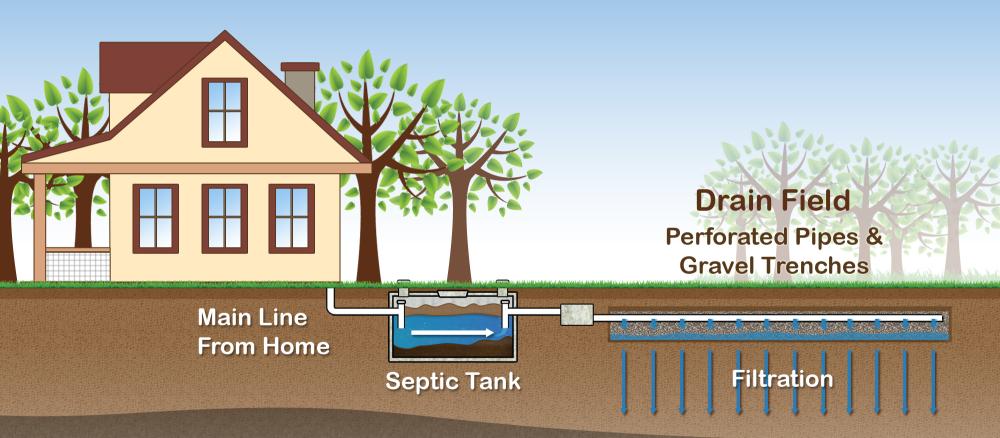More than 600,000 Minnesota homes and businesses use septic systems, treating an estimated 42 billion gallons of wastewater per year. Maintaining these systems is critical to protecting our groundwater, lakes, and streams, and human health. A poorly functioning septic system may not remove pathogens, nutrients and other chemicals from the sewage. before it enters our groundwater or lakes.
Understand your system
A septic system has three parts, all of which must be working to provide effective sewage treatment.
- household plumbing
- a tank to collect sewage and solids
- a soil treatment area
Maintain your system
Many septic system owners assume as long as their used water “goes away,” their system must be working properly. Septic systems must be designed specifically for your site’s conditions and installed correctly. Only regular maintenance and evaluation of the system can ensure that it is actually treating your sewage.
Look for signs of a faulty or poorly functioning septic system. These include a pipe that goes directly to the lake or ground (even laundry water!), sewage surfacing in the yard or a ditch, sewage odors, high levels of nitrates or coliform bacteria in well water tests, or algae blooms and excessive plant growth in nearby ponds or lakes.
Septic system maintenance will increase system life. The MPCA suggests that septic tanks be evaluated at least every three years and pumped out when sludge and scum accumulate to the point of endangering the soil treatment system. For some homes, the accumulation can take many years; in other homes this process may take less than a year. The accumulation depends entirely on how the system is used. For example, routine garbage disposal use will increase accumulation of material in the tank. Septic tank additives are not an alternative to pumping the accumulated solids from the tank.
Manage your system
These operation and maintenance guidelines will prevent costly repairs or premature replacement of your septic system:
Household plumbing
- Conserve water, repair leaks and use low-flow fixtures.
- Spread water usage throughout the day and week. If you have periods of high use, talk to a septic professional about options that will help your system manage your lifestyle.
- Minimize use of harsh cleaners, bleach, antibacterial soaps and detergents.
- Do not dispose of paints, medications or chemicals through your septic system.
- Keep grease, lint, food, feminine hygiene products and plastics out.
Septic tank
- Pump solids through tank’s maintenance hole regularly — at least every three years.
- Do not remove solids through inspection pipes.
- Install and insulate risers to maintenance hole for improved management access.
- Have baffles inspected when tank is pumped.
- Install an effluent screen and service as necessary.
- Do not use tank additives or cleaners.
Soil treatment area
- Maintain grass, native grasses or flowers over the treatment area. Mow, but do not fertilize, water or burn.
- Do not plant trees, shrubs or deep-rooted plants on or near the area.
- Do not grow vegetables or locate playgrounds above the area.
- Keep heavy vehicles off area (cars, tractors, snowmobiles, boats, etc.).
- Help prevent the system from freezing. See links in the additional resources section for details.
Hire a licensed professional to help you
The MPCA maintains a list of professionals currently licensed by the state to conduct this specialized work. Interview your septic system professional and learn about how they do business. Make sure they are licensed, reputable and reliable by asking for and checking references.
Additional resources
Since local ordinances can vary from the state code, always check with your local government (township, city, or county) to determine the requirements in your area.
